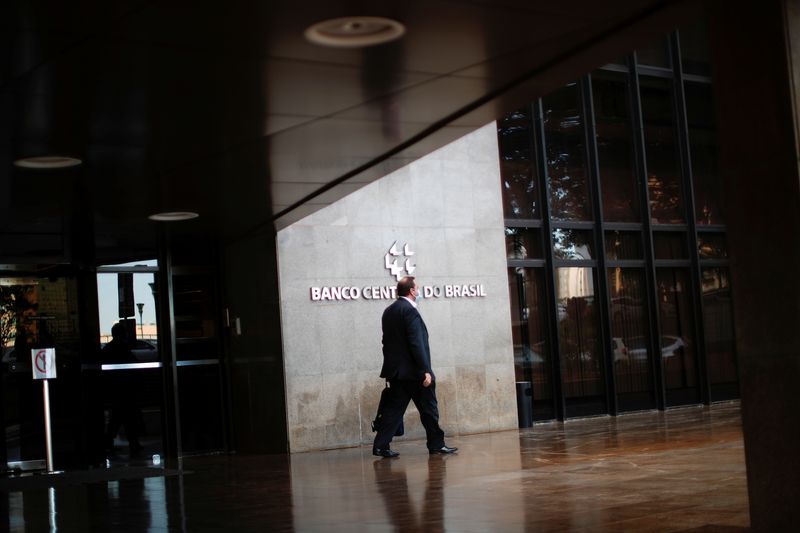BRASILIA (Reuters) -Brazilian central bank director Diogo Guillen on Monday ruled out that policymakers would give up interest rates as a policy instrument in the future, at a time when its aggressive cycle of monetary tightening is coming to an end.
"The central bank continues to have the (policy rate) instrument. We will evaluate in the future what is the best use of the instrument," Guillen, the economic policy director, said during an event hosted by Credit Suisse.
"It's not about giving up the use of the instrument," he added.
The statement followed a question about how the central bank would navigate an uncertain scenario without further monetary policy, following official communication that its strategy to combat double-digit inflation involves a higher terminal interest rate and keeping it at that level for longer.
The central bank raised its benchmark Selic interest rate to 13.25% in June from a record low of 2% in March 2021, and has already penciled in another increase in August.
Without signaling precisely if this would be its final hike, policymakers also stressed the additional need to maintain rates "in significantly contractionary territory" for a longer period to bring 2023 inflation to around the official target.
Guillen noted that the strategy remains the same and that the central bank has said it will "persevere" in this task until inflation expectations are "anchored."
While policymakers see 2023 inflation at 4%, private economists polled by a central bank's weekly survey forecast it at 5.13%, against an official 3.25% target.

Guillen stated that the difference is due to the central bank's assumptions for oil, shocks in industrial goods and a neutral interest rate.
He also said that much of the better-than-expected performance of the Brazilian economy stems from transitory effects associated with post-pandemic normalization.